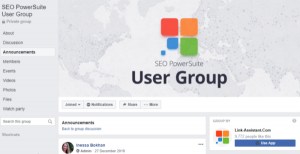Prosecuted for…Tweets?
On December 2, 2014, the Federal Trade Commission (“FTC”) published a proposed consent order for public comment, regarding a settlement agreement reached with advertising agency Deutsch LA, Inc. Deutsch LA was hired by Sony Computer Entertainment America LLC to develop an advertising campaign for the Sony PlayStation Vita (“PS Vita”), a hand held gaming console. As part of the social media ad campaign, Deutsch LA encouraged the public to tweet positive reviews or statements about the PS Vita using the “#gamechanger” hashtag. According to the FTC Complaint, Deutsch LA also disseminated an e-mail to all employees, requesting they tweet about the PS Vita using the same hashtag. As a result, certain employees posted positive comments regarding the PS Vita on their personal Twitter accounts, including: “PS Vita [ruling] the world. Learn about it!” “This is sick. . . .See the new PS Vita in action.” “Got the chance to get my hands on a PS Vita and I’m amazed how great the graphics are. It’s definitely a #gamechanger!” (FTC Complaint.)
Companies have employees promote products all the time. So what was the problem with Deutsch LA’s e-mail request and the resulting tweets? According to the FTC, the tweets represented deceptive advertising in violation of the Federal Trade Commission Act. With respect to endorsements of a product, the FTC’s strict guidelines require disclosure of any material connection between an endorser and the advertiser; otherwise, the endorsement could be deemed deceptive.
While the FTC’s action asserted deceptive advertising claims about the Sony console, the Deutsch LA settlement is significant because it represents the FTC’s first prosecuted case of deceptive advertising in connection with non-disclosure in tweeted endorsements under Section 5(a) of the Federal Trade Commission Act and the FTC’s Dot Com disclosure guidelines relating to that section. Typically, the client, e.g., Sony, or the agency will send out tweets from their branded accounts. The affiliation to the product is obvious, and no further disclosure is needed. The Deutsch LA situation, however, reveals that the FTC is also looking at employees’ personal accounts in order to take action. As a result, agencies must take the time to update (or institute) social media training provided for employees.
How could Deutsch LA have Complied with FTC?
Considering that a tweet can only have 140 characters, what could Deutsch have done differently? By adding descriptive hashtags disclosing the relationship: e.g., #paidad, #ad, #sponsored, etc, Deutsche LA could have been in compliance. According to the FTC, such hashtags would have made clear the potential bias in the tweeted “advertisements.”
Best Practices for Agencies
It is important to work with your in-house and outside counsel as you develop ad campaigns on various social media platforms, in order to stay in full compliance with the federal guidelines. At a minimum, employees should be informed of the following FTC rules regarding endorsements and false and deceptive advertising:
- Endorsements must be truthful and not misleading;
- If the advertiser doesn’t have proof that the endorser’s experience represents what consumers will achieve by using the product, the ad must clearly and conspicuously disclose the generally expected results in the depicted circumstances; and
- If there’s a connection between the endorser and the marketer of the product that would affect how people evaluate the endorsement, it should be disclosed. After the Deutsch LA settlement, this last point cannot be underscored enough because inevitably the FTC will consider these disclosure requirements in all forms of social media including Pinterest, Instagram and blogging.
(281)








